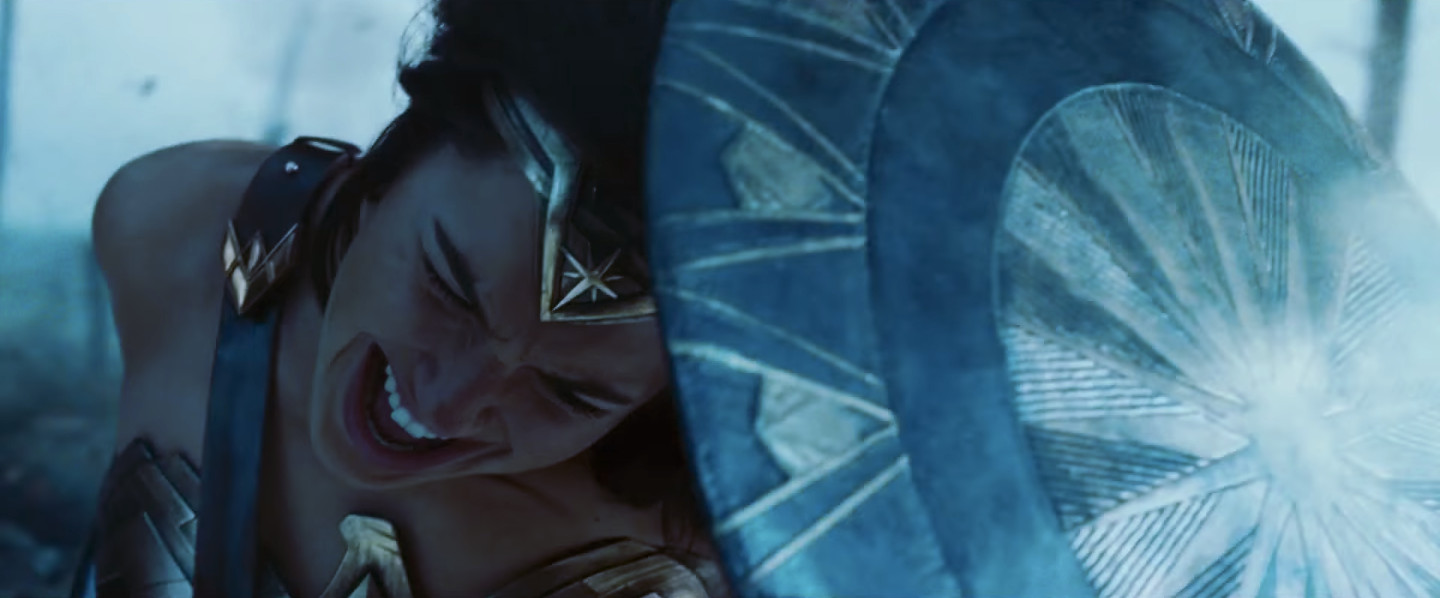Why Wonder Woman Sounds Like the “Hopeful, Optimistic” Movie We Need in a Sea of DC’s “Darker, Edgier” Movies

DC Entertainment has revealed more details about the overall tone of Patty Jenkins’ Wonder Woman movie, and by all reports, it’s not going to have the grim, dark, edgy aesthetic of the Zack Snyder-helmed DC movies. That may be a good thing, since critics slammed Batman v Superman: Dawn of Justice and Suicide Squad… but then again, those movies did make plenty of money, so why change the paradigm?
For whatever reason, Wonder Woman has been tapped as the outlier of the pack; it’ll be the “optimistic” movie of the DC universe, and Diana will be “optimistic” as well. Deborah Snyder, who’s served as producer for all the latest DC films, told Variety, “Wonder Woman is very different in tone and style than Batman v Superman and Suicide Squad. We pick directors who have their own points of view, so that each of our films will have their own personality.” So, basically, Patty Jenkins’ vision for the movie is leading the way on this, and it’ll be necessarily different from the other movies in the DC pack.
Diane Nelson, DC Entertainment prez, echoed that sentiment: “There’s a misconception that DC or [parent studio] Warner Bros. has made a conscious decision for all our movies to be darker or edgier. That’s not the case. Fans of the DC universe know that there are characters, like Batman, who are darker, but there are others like Wonder Woman, who are hopeful, optimistic leaders, and the tone of this film represents that.”
Nelson went on to explain how Wonder Woman’s fighting style is also reflective of her differences from the other heroes we’ve seen so far from DC Entertainment: “Her armor, the shield, the lasso, and so forth are what you could describe as defensive weapons as opposed to offensive weapons. That’s a pretty good way to think about the way she fights. She’s not choosing to fight for the thrill of battle. She’s fighting because she believes in something and she’s quick to put down that sword when the opportunity is there.”
This all adds up with Gal Gadot’s comments yesterday about Diana’s characterization in this movie: “It was her heart that we cared about, not her being this warrior. When you tell a story from the heart, all of us can relate, because all of us want to live in a safe, quiet, and peaceful world.” (Gal Gadot also stated her support of Diana’s bisexuality, although that won’t be acknowledged in this movie, which is a shame.)
What’s unusual about all of these new details, in my opinion, is that the marketing for the movie hasn’t really reflected that. The trailer, which I’ve embedded up top, feels as grim and dark and gritty as Batman v Superman in terms of lighting, costuming, editing, music, and so on. In that trailer, we see Wonder Woman fighting against tons of soldiers and using her lasso as an offensive weapon, not as a defensive one. The movie looks very aggressive and violent, at least in that trailer, and it also looks grim and depressing–not hopeful or optimistic at all, let alone pacifist-minded.
Of course, trailers don’t always reflect the actual movie, but it does seem like the marketing team made an intentional choice with this trailer. I wouldn’t be surprised at all if we end up seeing a second trailer for Wonder Woman in the future that strikes a very different tone. It’s possible that the events in this trailer reflect Diana’s darker and more depressed moments of getting entrenched in human wars, before she gets renewed hope again.
Historically, Diana has often been portrayed as having a more optimistic attitude, given that she grew up in a very different culture and has her own Themysciran ideals. As Greg Rucka recently explained when confirming Wonder Woman’s bisexuality, Themyscira has a much more relaxed attitude about defining sexuality, and therefore homophobia doesn’t exist in the same way there–nor do sexism and racism exist, at least not in systemic, institutionalized forms. Not that Themyscira doesn’t have its problems, certainly–but it’s definitely different from the world that we know. That “fish out of water” experience is what makes Diana so compelling as a character; she comes from a world where she never saw respect as an exception, but rather, as a typical life experience. She didn’t have to fight against institutional biases to be taken seriously; she already believes in herself and doesn’t need validation or permission from anyone. It’s sad that that’s so “optimistic,” but it’s always been a part of what makes Diana great, so I’m interested to see how this movie approaches that.
Based on this new description of the movie, this adaptation continues to sound like a blend between the tone of Lynda Carter’s very first pilot for Wonder Woman (which also served as a light-hearted fish-out-of-water story about these same themes, albeit with a very 70s-era brand of feminism), as well as the 2009 animated Wonder Woman movie. I like both of those versions of Diana’s origin, but they’re a little “old school”–for example, even in the 2009 movie, Etta and Diana are rivals, rather than friends. That said, I still like the “fish out of water” origin for Wonder Woman, and I’m happy to see it play out yet again, since many audiences aren’t actually that familiar with the story, and it deserves to be told to a wider audience. I’d much rather see a hopeful, pacifist Diana than a grim-dark gritty one, anyway.
(via Coming Soon, image via YouTube screencap)
Want more stories like this? Become a subscriber and support the site!
—The Mary Sue has a strict comment policy that forbids, but is not limited to, personal insults toward anyone, hate speech, and trolling.—
Follow The Mary Sue on Twitter, Facebook, Tumblr, Pinterest, & Google+.
Have a tip we should know? tips@themarysue.com